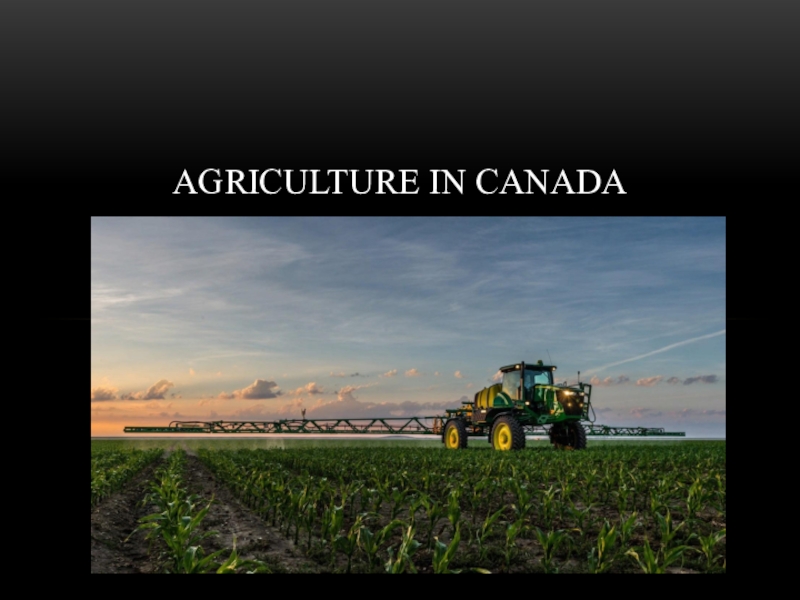Разделы презентаций
- Разное
- Английский язык
- Астрономия
- Алгебра
- Биология
- География
- Геометрия
- Детские презентации
- Информатика
- История
- Литература
- Математика
- Медицина
- Менеджмент
- Музыка
- МХК
- Немецкий язык
- ОБЖ
- Обществознание
- Окружающий мир
- Педагогика
- Русский язык
- Технология
- Физика
- Философия
- Химия
- Шаблоны, картинки для презентаций
- Экология
- Экономика
- Юриспруденция
Agriculture in Canada
Содержание
- 1. Agriculture in Canada
- 2. introductionCanada is one of the largest agricultural
- 3. Department of Agriculture and Agri-Food
- 4. Major agricultural productsVarious factors affect the socio-economic
- 5. Early in the 21st century, Canadian agronomists
- 6. Canadian agricultural government departmentsThe Department of Agriculture
- 7. agricultural government departments of canada
- 8. Слайд 8
- 9. TradeThe marketing and economic movement of Canada's
- 10. Canada became more of an industrial entity
- 11. AgribusinessAgribusiness are activities of food and fibre
- 12. Agricultural ScienceAgricultural science began developing new styles
- 13. Thank you for attention!
- 14. Скачать презентанцию
introductionCanada is one of the largest agricultural producers and exporters in the world. As with other developed nations, the proportion of the population and GDP devoted to agriculture fell dramatically over
Слайды и текст этой презентации
Слайд 4Major agricultural products
Various factors affect the socio-economic characteristics of Canadian
agriculture. The 2006 Census of Agriculture listed seven: Quantity and
type of farms; Biogeography: crop and land use areas; land management practices; Quantity of livestock and poultry; Agricultural engineering: Farm machinery and equipment; Farm capital; Farm operating expenses and receipts; Farm-related injuries.Слайд 5Early in the 21st century, Canadian agronomists were aware of
48 "primary grain, vegetable and fruit crops", based on surface
area and value. In 2007, the Canadian Federation of Agriculture broke down into five primary "production sectors" Canadian agriculture according to cash receipts:grains and oilseeds: 34%
red meats – livestock: 24%
dairy: 12%
horticulture: 9%
poultry and eggs: 8%
Слайд 6Canadian agricultural government departments
The Department of Agriculture set out in
the British North America Act of 1867 (BNA) states each
province may have jurisdiction over agricultural concerns, as well as the Dominion Government may also make law in regard to agriculture. Newfoundland agricultural affairs were dealt with by the Agricultural Division of the Department of Natural Resources at Confederation.The BNA states that the federal Government has sole authority in coastal and inland fishery matters. Provinces have rights over non-tidal waters and fishing practices there only.
































